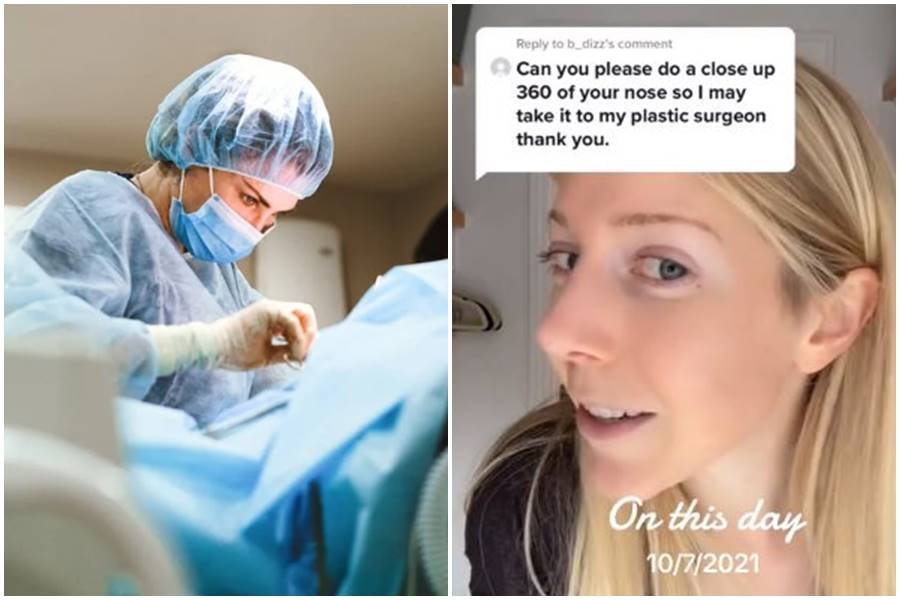There is an age-old debate over whether someone should get plastic surgery to overcome their insecurities or learn how to accept them by talking to a therapist.
Plastic Surgeon Dr. Chales T. Slack says that plastic surgery can’t solve all someone’s problems. “Perkier breasts won’t save your marriage,” Parker wrote on his blog. “A new nose won’t guarantee a promotion. And while cosmetic surgery can give you a boost of confidence and add to your self-esteem, it cannot fix big underlying psychological issues.”
Studies show that for some plastic surgery can be a big boost to their self-esteem, while for others, such as those with body dysmorphic disorder, it can lead them to feel even worse about themselves.
Over recent years, public opinion surrounding plastic surgery has changed. Previously, many thought cosmetic treatments were vain, superficial, or only for people with low self-esteem. But these days, more see it as self-care in a world where people feel judged for their appearance.
Since the pandemic, there has been a huge surge in people getting plastic surgery. Especially among those younger than 45. At least 30% of plastic surgeons say their business has at least doubled since 2020.
Shannon McNamara, the host of the Fluently Forward podcast, recently reshared a video of her getting a nose job to inspire others who are feeling insecure about their body to get work done.
“I’m short, I’m petite, and I just feel like my nose stuck out so much,” she said in the video. “I feel like anyone else who doesn’t like their nose, you will know the feeling. I don’t even have to describe it; it was all I thought about.”
McNamara believes the pain of being uncomfortable with her nose went way beyond the satisfaction she could ever feel by having a “natural” body.
“I thought about my nose every day,” she said. She then shared a memory of when she was in the 7th garage and went out of her way to sit in an odd position in class to ensure her crush couldn’t see her profile.
She also spoke out against those who said she shouldn’t get plastic surgery because she was “so beautiful that she didn’t need” it. McNamara believes cosmetic surgery can be necessary when extreme feelings of insecurity cause stress hormones to overtake your body. “It’s just sending cortisol through their system,” she argues.
“Get it done,” she urged. “Get work done.”
Five years after the surgery, McNamara is satisfied with her new look. “I don’t give a rat’s A about my nose,” McNamara said. “I just don’t think about it, and that was what I wanted. And I think everyone who says that they got their nose done, the only thing they regret is not doing it sooner.”
McNamara’s video is a strong case for those who want to remove the stigma surrounding plastic surgery. However, the research shows that the answer should differ for everyone, depending on the root causes of their insecurities. “The whole idea of aesthetic surgery being superficial, it’s just not,” Dr. Adam Kulker tells InStyle. “People tend to be very judgmental, but it’s so much more important to focus on the individual and their self-perception.”







































